HUNTSVILLE, Ala. (WAFF) – The fight against COVID-19 is a world-wide effort, and the HudsonAlpha Institute for Biotechnology is leading the way here in North Alabama.
A few months ago, HudsonAlpha President and Science Director Dr. Rick Myers shared that the institute had launched an antibody study in partnership with Huntsville Hospital in hopes of developing a treatment for COVID-19.
The study involved taking blood samples from patients at several intervals throughout their diagnosis, meaning the institute would collect a sample when the patient was first admitted to Huntsville Hospital, then collect another sample a few days later, then again a few days later, etc. Researchers would then study those samples to look for antibodies that react with the virus.
So far, the study has showed promising results.
“They have indeed identified from these patients antibodies that are clearly being made in response to being infected with the virus,” says Dr. Myers. “The idea there is you take that information from those antibodies and then try to develop a therapy from it.”
The timeline for testing that therapy is moving along rather steadily.
“I wouldn’t be surprised if we see that within the next month or two,” says Dr. Myers.
Still, Dr. Myers says developing a treatment for COVID-19 is going to be a joint effort with researchers from around the country and around the world.
“There’s not going to be only one treatment, only one antibody. It’s going to be what we call a cocktail. It might even be as many as a dozen or so different antibodies that you put together and then use as a treatment,” says Dr. Myers. “So, we’re really looking forward to that next step. We have arrangements with other laboratories to try to get to that point.”
In the meantime, Dr. Myers continues to stress people take proper precaution to prevent the spread of coronavirus.
“I just hope that everyone will take this seriously because we can get over it a lot easier and a lot faster if we actually follow the recommendations about wearing masks, keeping distances, washing, etc.” says Dr. Myers. “They do help tremendously.”
